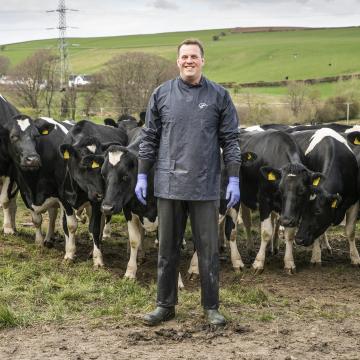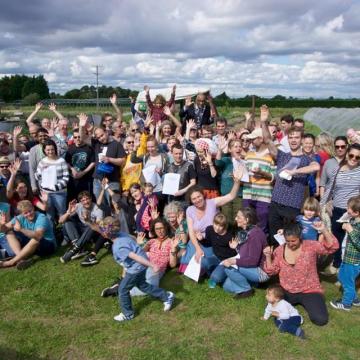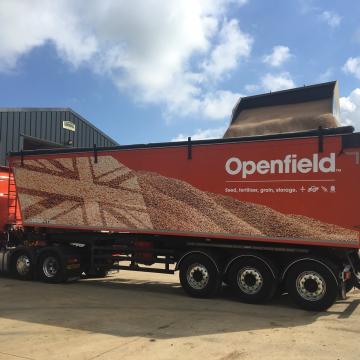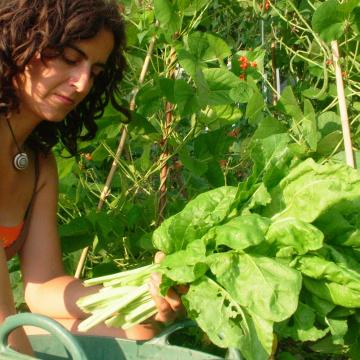Stroud Micro Dairy: Co-op agriculture that’s kinder to people, animals and the environment
Case study

Read the story of the farming company that successfully converted to a co-op to make the business more resilient, enable expansion and offer sustainable livelihoods – all thanks to support from The Hive.
A community-supported farm in Gloucestershire, Stroud Micro Dairy produces fresh raw milk, yoghurt and kefir, using techniques that positively impact the soil, animals, people and the environment.
It was the brainchild of Kees Fredericks, a farmer’s son who was living in London when he became inspired to return to his roots. “I read a book that gave the idea that farming could have a positive impact on the environment, rather than be less bad. That’s how I re-discovered agriculture.”
When the Biodynamic Land Trust (a charity supporting planet friendly farming) were looking for tenants for a plot of land, Kees jumped at the chance and started the business as a limited liability company in 2017.
It was after a family tragedy struck in 2020 – Kees and his wife lost their 10-month-old son to meningitis – that he decided to change how the business was run.
“Lots of things came out of it, how fragile stuff is and how quickly it can disappear,” he says. “Coming out of that, we wanted to have this under community ownership. So that if anyone has to leave, it doesn’t fall apart like a house of cards.
“Becoming a co-op allows us to fix that and addresses the resilience aspect of it. That’s a challenge for most small businesses – if the founder leaves, what’s left?
“When the assets are held communally, there’s more incentive to step in to ensure continuity. There are structures in place.”
To convert the company into a co-operative, the dairy received support from The Hive via co-op development expert Alex Lawrie. “He provided invaluable consultancy that got us to the stage where we could register as a co-op and put together a plan for developing the business going forward,” says Kees.

The Hive also supplied rules templates. A co-op’s rules govern what it does, how it does it and the relationship it has with its members.
“Alex walked us through the draft rules and we discussed which we wanted. It was great to have somebody saying: ‘This you can change. This won’t be accepted. This you can change in future.’
“It was useful to have advice to know what we can and can’t do – and the practicalities of what you need to get going. We really appreciated Alex’s support with the governance and technical side of things.
“His expertise enabled us to access in-depth knowledge of how co-ops work and we didn’t have to research everything ourselves on top of a very onerous workload. That was great.”
Stroud Micro Dairy incorporated as a co-op in September 2021 and in December launched a community share offer to bring it into community ownership – and enable it to expand in the future.
“The fact we have a co-op structure now gives us a route to build the business,” Kees says. “We want to see this company double again over the next four years and have another one and a half employees. And we want to be able to offer people proper, sustainable livelihoods.”
Find out more
- Stroud Micro Dairy – Website | Twitter | Facebook | Instagram | Community Share Offer
-
If you’ve got a business idea, or you’re already a co‑op, The Hive can help turn your plans into action:

New co-op on the block: Azora Community Farm

“It gives a lot more power back to the farmer.” – First Milk co‑op

Growing the community: Sutton Community Farm

New report calls for “game‑changing” farmer co‑operation

Openfield, the UK’s only national farming grain co‑operative

“Social and environmental aims are fundamental to our work” – OrganicLea


